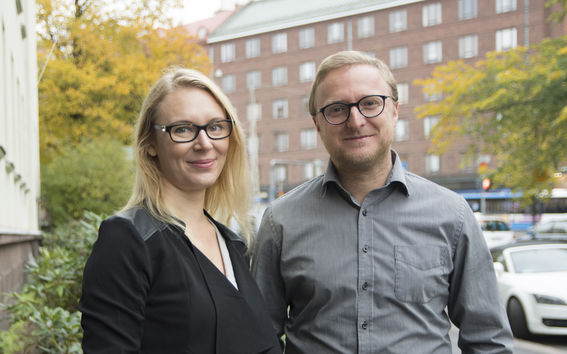What does entrepreneurship mean for sustainable development? 3 distinct things, according to EU policy

Entrepreneurs should play a role in making our world more sustainable—or is their role in bringing about change a matter of business opportunity? A new study has found three distinct ways in which the European Union defines what entrepreneurship means for sustainable development, producing a blurry message of the role entrepreneurs and business owners have to play in tackling the global issue.
‘If sustainable development is a serious matter and the end goal is to actually have impact across 28 nations, EU policy needs more focus,’ says Virva Salmivaara, lead author of the study and post-doctoral researcher at Aalto University.
More than 20 million small- and medium-sized businesses call the EU home, making entrepreneurs key drivers for economic growth, innovation and employment across the region. The new in-depth analysis shows that, when it comes to sustainability, entrepreneurs and small businesses are seen in EU policy in three diverging ways: economic beneficiaries of the shift towards sustainability; pro-social contributors active in finding innovative, sustainable solutions; or opportunistic operators whose business interests simply collide with those of broader society.
‘The rhetoric used by EU policy-makers paints a very ambiguous picture of the role businesses play in the sustainability shift,’ explains Ewald Kibler, assistant professor of entrepreneurship at Aalto University.
‘For example, when policy says that entrepreneurs can take advantage of the growing demand for eco-friendly products and services, it ends up suggesting that sustainable development is not, in fact, a pressing problem that businesses need to tackle, but rather an optimistic change that offers new business opportunities. These are two very different understandings of what entrepreneurs can—and should—do,’ Kibler says.
Across the policies studied, sustainable development seems to be urgently needed when it could improve the business environment for entrepreneurs. However, taking a sustainable approach is framed as a voluntary option for the enterprises, something entrepreneurs can do now or later.
‘Based on our findings, EU policy makers often portray enterprises as passive players when it comes to sustainability,’ says Salmivaara. ‘Accordingly, it seems that EU states are actually expected to prioritise enterprise development over sustainable development. If the aim is to develop a more sustainable economy and society, EU policy needs to engage in a deeper debate and address how to balance both business interests and sustainable development.’
The study, published 14 May 2019, draws on more than 40 key EU policy documents released in 2010-2017, stemming from the Europe 2020 strategy for smart, sustainable and inclusive growth.
Publication info:
Salmivaara, V. &Kibler, E. 2019. ‘Rhetoric mix’ of argumentations: How policy rhetoric conveys meaning of entrepreneurship for sustainable development. Entrepreneurship Theory and Practice.
More information:
Virva Salmivaara
Post-doctoral Researcher
Aalto University School of Business
virva.salmivaara@aalto.fi
+358 50 441 8111
Ewald Kibler
Assistant Professor
Academy of Finland Research Fellow
Aalto University School of Business
ewald.kibler@aalto.fi
+358 40 353 8442
Read more news

Nature of Process: Exhibition by the students of the ‘Personal Exploration’ Course
Nature of Process is a multi-material exhibition of 14 Master´s students of Aalto ARTS
Doc+ connects research impact with career direction - join the events!
Doc+ panels have brought together wide audiences in February and continue in March with two events to discuss doctoral careers and their diversity.
Apply Now: Unite! Visiting Professorships at TU Graz
TU Graz, Austria, invites experienced postdoctoral researchers to apply for two fully funded visiting professorships. The deadline for expressions of interest is 20 February 2026, and the positions will begin on 1 October 2026.






